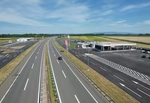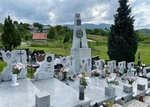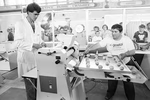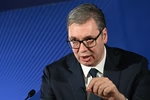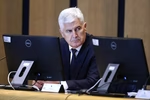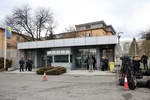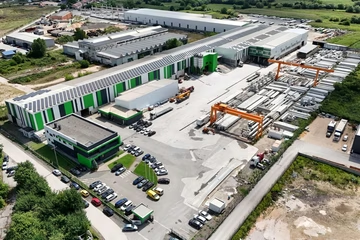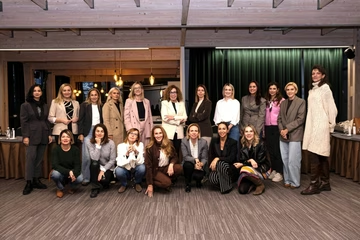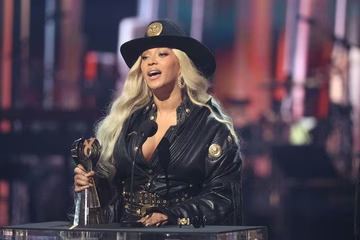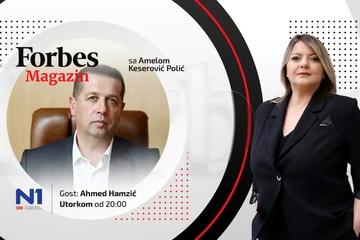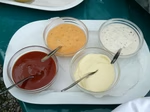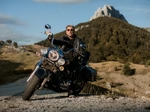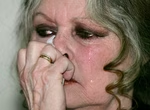Motaz Azaiza for N1: I have no more dreams, dogs and cats are eating our bodies in the streets of Gaza
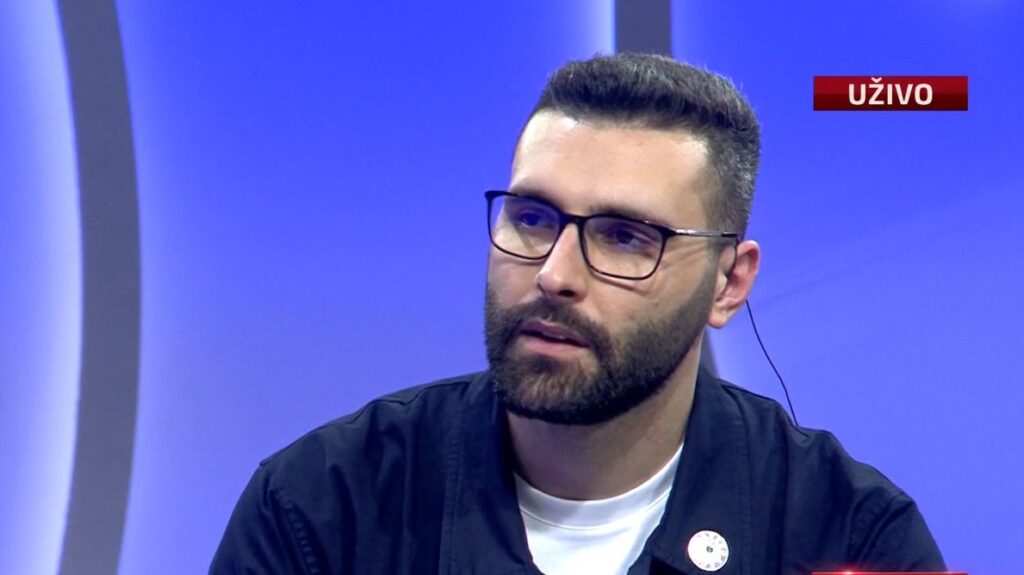
Motaz Azaiza, a prominent figure and photojournalist in Gaza, has become one of its most recognized faces. The 25-year-old Palestinian photographer spent 108 days documenting the enclave's suffering, risking his life to capture and broadcast real-time images. His photos depicting massacres, forced displacements, and humanitarian crises caused by Israel's retaliatory war since October 7, 2023, have circulated worldwide. With 18.4 million Instagram followers, he announced his departure from Gaza on January 23, 2024, marking his first-ever plane journey—a symbolic act amidst decades of occupation endured by Gaza's residents. Currently residing in Qatar for the past six months and now in Sarajevo attending a seminar titled "From the Balkans to Gaza: A Critical Analysis of Genocide," Motaz reflects on his life before and after leaving Gaza, the Palestinian plight, the Srebrenica genocide, and global responses to human suffering, exclusively for N1 TV.
Are you aware of the global support during the 108 days, and what does your voice mean for Palestine?
"It's a heavy burden, especially for a young man like me, but it's my responsibility. I hope people support what I do and share our suffering."
Are you aware of how powerful that voice is?
"Every voice in Gaza should be heard. It's very important for our cause. I'm using my voice, others are using their voices, so we can show the world and understand more about our cause and the struggle with the occupation."
What goes through a young man's mind in Gaza when images of massacres, displacements, and humanitarian disasters reach the world, yet the world does nothing to stop it?
"I am disappointed. The occupation has persisted since 1948. I don't expect the world to end the occupation in a short time. People watch, people share, people talk, but we need more actions, not more talk, not more shares. And actions can happen easily. To take action, to support the Palestinians, to support Gaza, you need to lose... Some people lost their careers, some people lost their access to some places, some countries, some people lost their education. So it's about losing, but it's easy to lose your work rather than losing your life, like what's happening in Gaza. And Palestine in general. So if you want to stand for Palestine, you should know that you're going to lose. For me, it's my job, I show the world how to take action. "
Do you even know if the world is watching? Did you think they would see this and react?
"People in Gaza know the world has seen this suffering. Sometimes, it feels like each new massacre is seen as the first. Every day, every minute, every second, there is a new massacre, new people getting killed, and it's the same. People react with it as it's a trend, and then when it's done, nobody talks about it anymore. And it's repetitive. Every day, you'll see a lot of the same images that happened yesterday, happened today, and for some reason, some people start to normalize it, like it's something, this is our Palestinian life, but this is not our life.
And yet, Palestinians resist. Many wonder what drives them, what gives them strength?
"So it's a kind of resistance. A lot of people, there are different types of resistance. The armed resistance, the resistance of your existence on the ground, because this is a war against our existence as Palestinians. It's not just only on Gaza. So yeah, there's different types of resistance for Palestinians, and we're trying our best. Like the thing I'm doing, other journalists are doing, it's a kind of resistance. To share the pictures from under the bombing, it's really not easy. A lot of, more than 150 journalists lost their lives while they were doing their work. So nothing comes easy."
Is there a safe place in Gaza?
No, never. Even the United Nations, the United Nations Work and Relief Agency, UNRWA, is supposed to be a safe place. It's not safe. Every day they are bombing a school for UNRWA, killing at least 10, 20, 30 people in one rocket. It's not safe. People believe that UN schools, the blue flag is safe. People in Bosnia believed that they will protect them, but they got killed in front of the eyes of the United Nations before.
You've mentioned that the war in Gaza didn't start on October 7 but much earlier?
"Gaza should be like any other place in the world, normal people wanting to live. It's all a struggle there. The hardest place with no hope. I've been without hope myself. We want to live on this sacred land, but we're alone, and the world is watching. We all must do more because dogs and cats are eating our bodies. It's not humane; humanity has failed here. It's so easy to kill a person in Gaza. They (Israelis) call us animals, the rest of the Western world calls us terrorists. If we don't liberate the land, this tragedy will continue. If the world watches in silence, I'm sorry—others will face similar fates."
Who do you expect to stop this?
"Maybe the United States and the United Kingdom, they are the most powerful, they make decisions. If millions protested, I think this would stop; no one likes that kind of noise. I don't trust governments (in the US and UK), but I trust the people."
Tomorrow you're going to Srebrenica. Are you afraid that what you see there will revive your memories of Gaza?
"I'm still connected to Gaza. I see new tragedies every day."
Besides a free Palestine, what is your wish, where do you see yourself in the future?
"It's unclear. It's hard for me to think about that. Such dreams no longer exist. I had a dream to take photos around the world, not this, but I have to do this. People lose lives, and I've lost my dreams. If you think about life, if you live for others, you never die, I deeply believe in that."
Kakvo je tvoje mišljenje o ovome?
Učestvuj u diskusiji ili pročitaj komentare





 Srbija
Srbija
 Hrvatska
Hrvatska
 Slovenija
Slovenija









